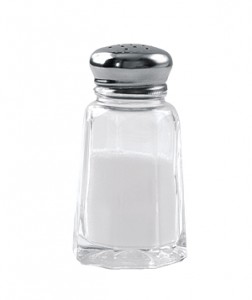 To most people across the globe, salt tastes delicious. It’s the reason most people crave foods like potato chips, peanuts and pretzels. There’s also a sizeable dose of salt in most processed foods, such as soups, frozen entrees and store-bought sauces. Salt even turns up in foods you wouldn’t expect, such as Corn Flakes and cookies.
To most people across the globe, salt tastes delicious. It’s the reason most people crave foods like potato chips, peanuts and pretzels. There’s also a sizeable dose of salt in most processed foods, such as soups, frozen entrees and store-bought sauces. Salt even turns up in foods you wouldn’t expect, such as Corn Flakes and cookies.
How does all of this salt consumption impact our health? The answer is, we really don’t know.
A new systematic review, published in the International Journal of Epidemiology, was conducted by researchers at Columbia University and Boston University. They looked at 269 academic reports — including primary studies, systematic reviews, guidelines, comments, letters and reviews — published between 1979 and 2014.
Essentially, their analysis found that researchers are split about whether salt intake is healthy or unhealthy for the average person.
“There are two almost distinct bodies of scholarship — one supporting and one opposing the claim that salt reduction in populations will improve clinical outcomes,” said David Johns, a doctoral student at Columbia University’s Mailman School of Public Health and author of the review. “Each is driven by a few prolific authors who tend to cite other researchers who share their point of view, with little apparent collaboration between the two sides.”
Essentially, the review found that scientists who write papers about the dangers of salt consumption tend to cite other papers that agree with their position. And the scientists who write papers that find salt is not a serious health threat tend to cite papers agreeing with their position. On the whole, the review found researchers were 50 percent more likely to cite reports that agree with their own stance on salt consumption.
They also found significant research bias in the systematic reviews on salt. If a research paper was selected for a systematic review concluding that salt consumption leads to health problems, it was not likely to be selected for a review concluding that consuming salt is not a health risk, and vise versa.
The take-home message here is just not clear. There is solid evidence that consuming salt can worsen existing problems such as high blood pressure and heart disease. But for otherwise healthy adults, there is not clear evidence whether Americans’ average salt consumption is unhealthy or not.
It is clear that this is an area of study where researchers’ personal biases play a role in how we interpret the evidence. There is an obvious need for additional research to determine whether salt consumption is truly a health risk.



Thank you for this analysis. Would love to see one on sugar consumption as well.